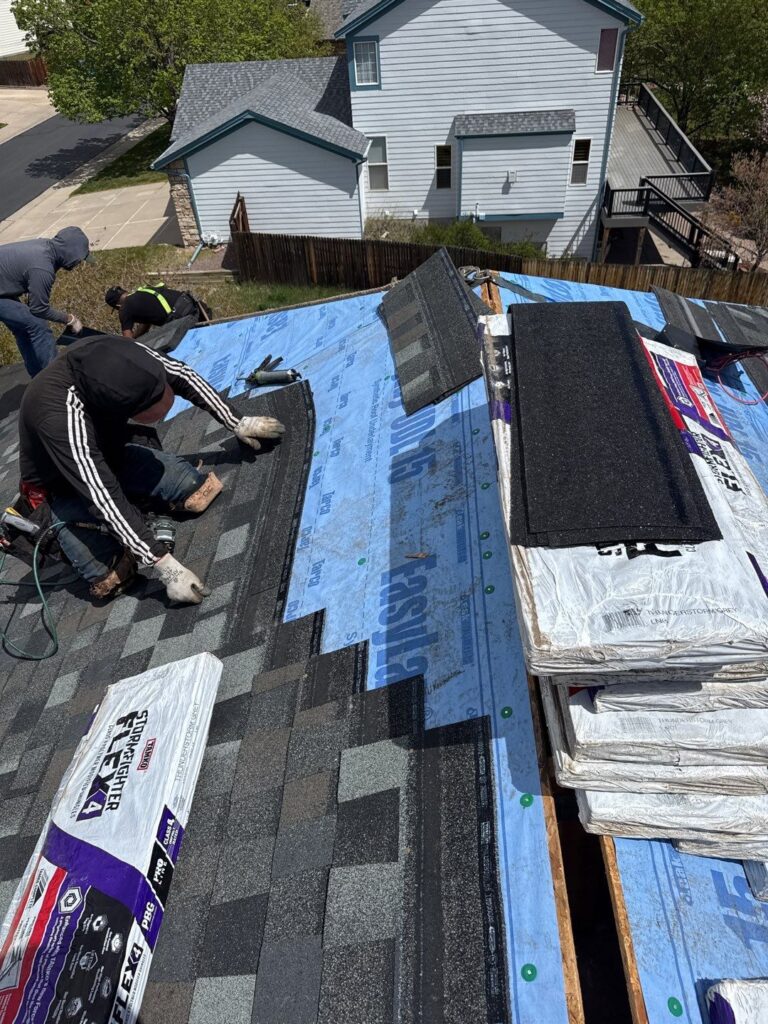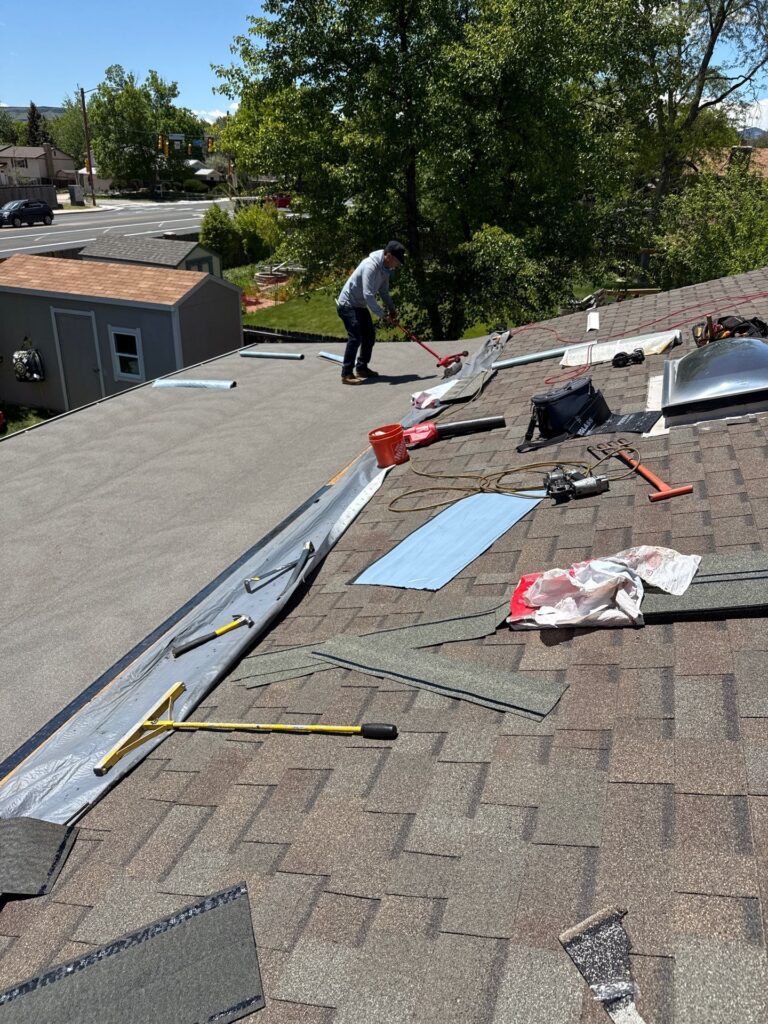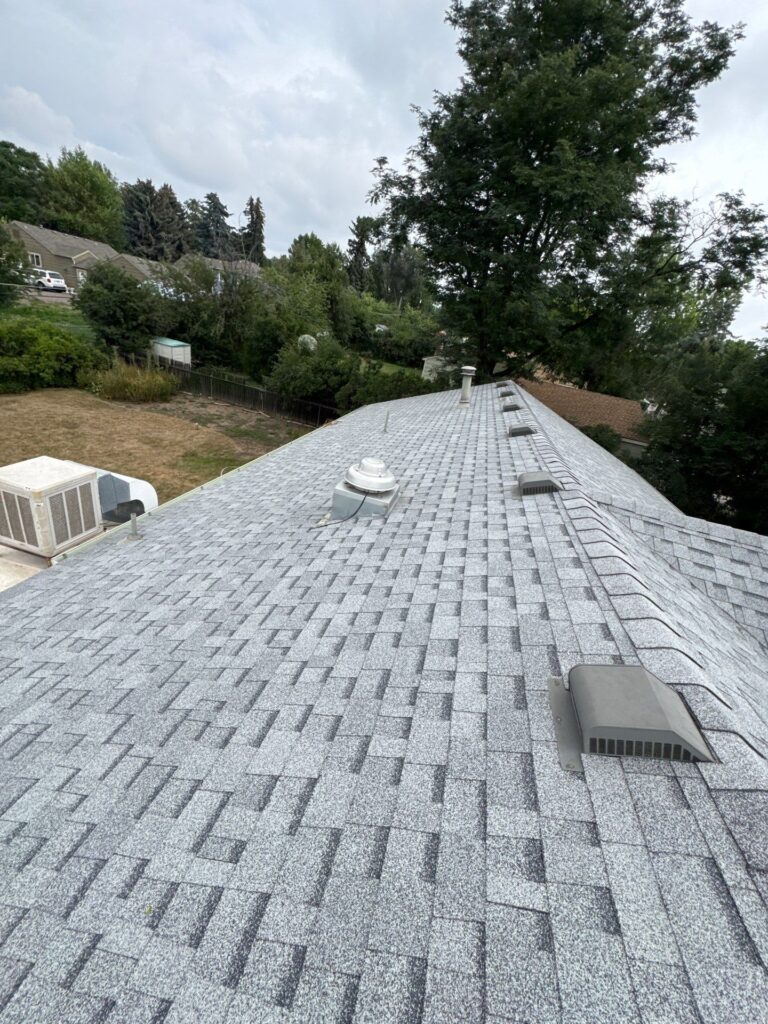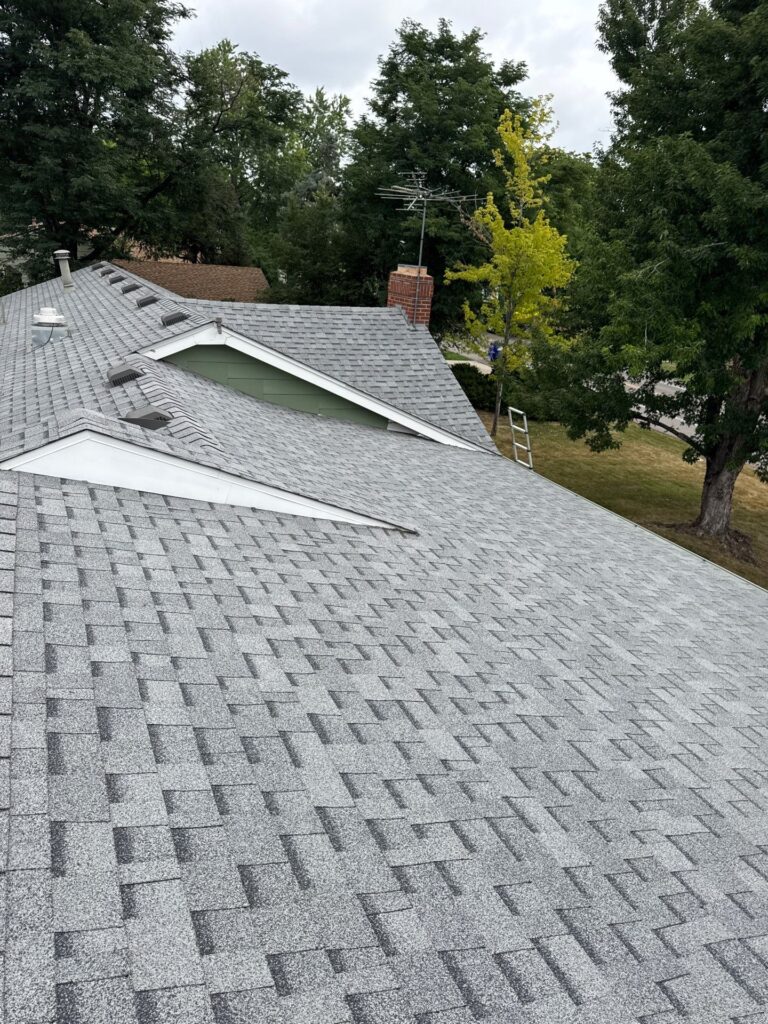Roof Inspection Timelines in Denver, Colorado

A well-timed roof inspection is one of the most effective ways to protect your property from costly repairs. Homeowners and property managers often wonder how long the process actually takes. While the answer depends on several factors, understanding the timeline ensures better preparation and peace of mind.
Average Duration of a Roof Inspection
Most residential roof inspections in Denver typically take 1 to 2 hours. However, this can extend depending on the following:
- Roof size: Larger homes or commercial buildings may require several hours.
- Roof complexity: Multiple levels, skylights, valleys, or chimneys demand extra attention.
- Inspection purpose: Inspections for storm damage, insurance claims, or pre-purchase evaluations are more detailed and take longer.
- Accessibility: Steep slopes, multi-story designs, or hard-to-reach areas can extend inspection time.
Factors That Influence Inspection Timelines
1. Roof Size and Structure
A small single-family home can usually be inspected in under an hour, while a large commercial building might take several hours or even days. Complex roof structures with intersecting angles or multiple additions add more time.
2. Roof Condition
If there are visible issues such as leaks, missing shingles, or signs of age, inspectors spend additional time diagnosing the extent of damage. More severe deterioration requires a closer, slower assessment.
3. Accessibility Challenges
Easily accessible roofs allow for a quick process. On the other hand, steep or multi-level roofs demand specialized equipment like safety harnesses and ladders, increasing the inspection time.
4. Inspection Type
Routine maintenance checks are typically straightforward, while inspections for insurance claims or after a hailstorm are more in-depth, requiring documentation, photographs, and detailed reporting.
How Modern Tools Reduce Inspection Time
Technology has transformed roofing in Denver. Many professional roofers use drones and infrared imaging to speed up and enhance accuracy. Drones capture high-resolution photos, allowing inspectors to analyze every corner of the roof without climbing on dangerous surfaces. Thermal imaging identifies moisture beneath shingles, spotting leaks invisible to the naked eye.
Preparing for a Faster Roof Inspection
Homeowners can help streamline the process by:
- Clearing the area around the home for safe ladder access.
- Providing past roof maintenance records or inspection reports.
- Scheduling inspections during good weather to avoid delays.
- Working with certified Denver roofers who utilize modern inspection methods.
Recommended Frequency for Roof Inspections
Experts recommend having your roof inspected at least once a year, ideally before winter or after major storms. Routine checks extend the lifespan of your roof, prevent small issues from becoming costly repairs, and ensure insurance claims are backed by professional documentation.
Choosing the Right Roofing Company in Denver
When searching for reliable roof inspections and maintenance, homeowners should look for experienced professionals with a reputation for thorough evaluations. Many roofing companies in Denver Colorado offer inspections, but partnering with a trusted team ensures accurate assessments and timely solutions. For example, Tried and True Roofing, based in Denver, Colorado, is known for delivering detailed inspections alongside top-quality roofing services.
Conclusion
A roof inspection in Denver generally takes one to two hours, though larger or more complex roofs require additional time. Factors such as accessibility, condition, and purpose of the inspection all influence the duration. With the use of modern tools and preparation from homeowners, inspections are faster and more accurate than ever. Regular inspections not only protect your property but also save significant costs in the long run.
Roof Inspection Timelines in Denver, Colorado Read More »





